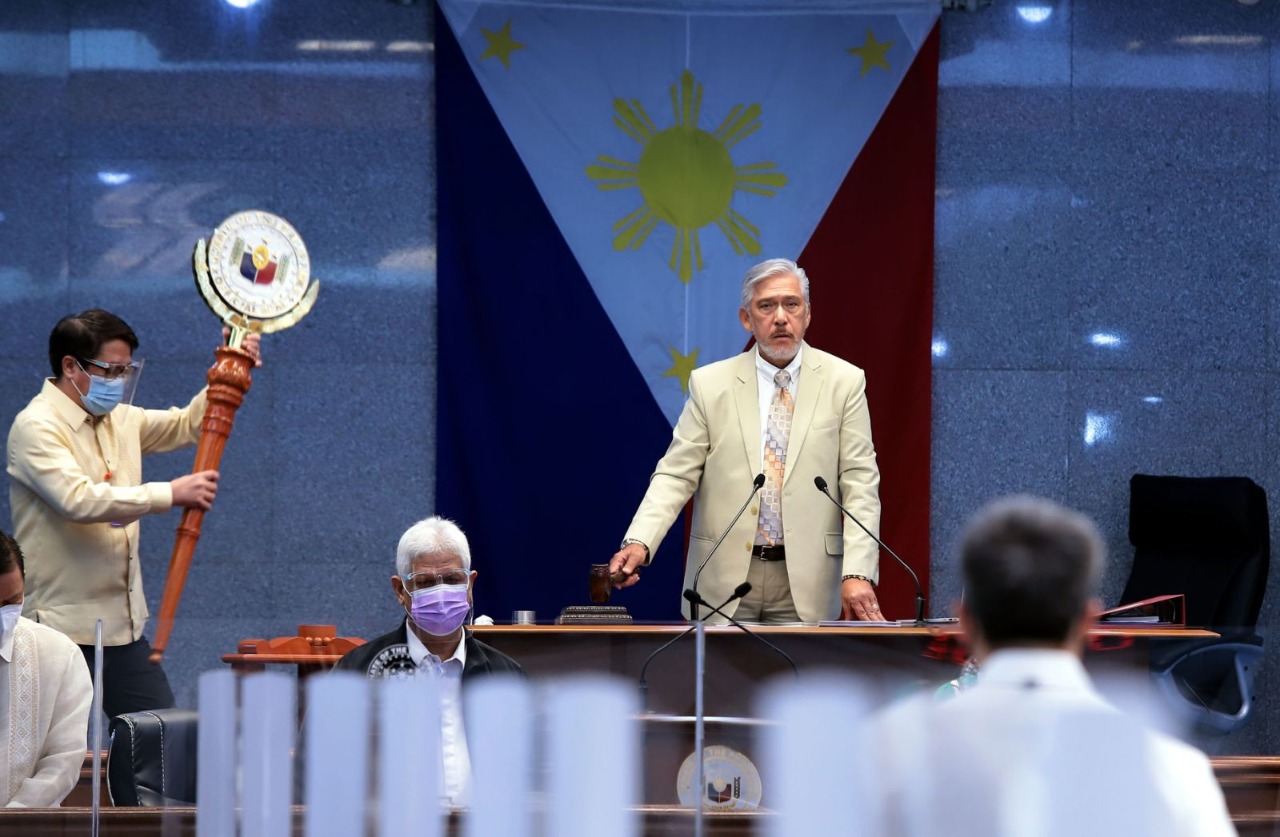
SOTTO PRESIDES 32ND SESSION: Senate President Vicente C. Sotto III presides over Monday’s hybrid plenary session, December 14, 2020. The Senate is set to go on recess for a month-long holiday break starting December 19 and will resume plenary proceedings on January 18, 2021. PRIB
MANILA, Philippines — The Senate on Monday urged the Department of Transportation (DOTr) to immediately suspend the implementation of a completely cashless payment system in tollways.
This as the chamber adopted a resolution “expressing the sense of the Senate to strongly urge” the DOTr to halt the implementation of its department order on the mandatory cashless toll payment scheme and “all related issuances on toll expressways.”
“I’m firmly putting forward a resolution that addresses a current situation that has proven to be extremely inconvenient and oppressive to all motorists going to and coming from Metro Manila and nearby provinces,” said Senator Grace Poe, chair of the Senate public services committee.
“We are all familiar with what’s currently happening—we’ve seen the photos on social media, we’ve heard the news on the radio,” she added.
Due to the “hasty” implementation of the cashless toll system, the senator lamented that “our toll plazas have become parking lots.”
Poe also said that while cashless transactions are “indeed ideal” and a “necessity,” especially during the pandemic, she pointed out that “effective policies are not borne out of good intentions alone.”
“We need to be able to have corrections at the moment and suspend it while they’re trying to figure it out and getting their acts together,” she said.
The DOTr earlier ordered the full implementation of cashless toll collection at expressways and major toll roads in a bid to reduce physical contact in these areas as a measure against the spread of COVID-19.
READ: DOTr: Toll operators 100% ready to go cashless; 3.2M cars now have RFID tags
The suspension, according to the resolution, should remain in place “pending the resolution of complaints against the cashless and contactless transaction system.”
The Senate resolution also called on the DOTr to amend issuances related to the cashless toll payment scheme to “reflect the actions taken to improve” the system’s implementation.
Poe cited two “major issues” in the implementation of the radio-frequency identification (RFID) system, such as the “absence of an interoperable RFID system on all expressways and the sheer volume of vehicles that need to obtain RFID stickers within a short timeframe.”
“There are 12 million registered vehicles in the country. Of this number, 6.1 million are in Metro Manila, Central Luzon, and Calabarzon, and three million do not have RFID stickers,” she said.
According to Poe, the resolution seeks to address the issues at hand by calling for the suspension of the implementation of the DOTr order and other related issuances which mandates toll operators to roll out a completely cashless system until they are modified to reflect the following changes:
- Allow cash lanes in consideration of infrequent and first-time users of expressways
- Remove penalties for insufficient cash balances as this should not be a traffic violation and may be remedied at the next reloading opportunity
- Impose a deadline on interoperability before a deadline for cashless transaction is imposed
- Create a policy on dormant accounts and the accumulated amounts that is expected to pile up through time
- Resolve all other issues for a better cashless and contactless toll system.
The Senate’s action followed Valenzuela City’s move to suspend the business permit of the North Luzon Expressway Corporation after it failed to address the heavy traffic that its cashless toll collection has been causing in the city.